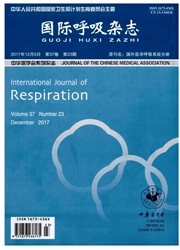

 中文摘要:
中文摘要:
易栓症不是一种特定的临床疾病,而是由于遗传性或获得性的抗凝蛋白、凝血因子、纤溶蛋白等缺乏导致的一种血液高凝的状态。易栓症患者易形成深静脉血栓(Deep Vein Thrombosis DVT)以及肺栓塞(Pulmonary Embolism PE),两者可统称为静脉血栓栓塞(Veinous Thromboembolism VTE)。易栓症分为遗传性和获得性两种,但近年发现两类因素可有交叉影响。在遗传性易栓症中,东西方人种形成易栓症的遗传因素并不相同。在获得性易栓症中,年龄、怀孕、大型手术术后、卧床时间长、恶性肿瘤、高同型半胱氨酸血症、吸烟等可导致易栓症。诊断易栓症时,广泛的基因筛查及广泛的肿瘤筛查因为花费大、结果特异性不大而均不推荐。主要的治疗手段为口服或静脉给予抗凝药物。药物的选择必须考虑病因、危险因素、受益、费用以及患者的喜好,治疗时间需要根据具体情况决定。
 英文摘要:
英文摘要:
Thrombophilia is not a specific disease, it' s a hereditary or acquired hypercoagulable state caused by the lack of anticoagulant protein, blood coagulation factor and fibrinolytic protein. The patients of thrombophilia are easy to suffer from deep vein thrombosis (DVT) and pulmonary thrombosis, which are collectively known as veinous thromboembolism. Thrombophilia is divided into two types, hereditary thrombophilia and acquired thrombophilia, but recent research show that this two factors have a cross impact to each other. In hereditary thrombophilia, the main ge- netic factors between eastern and western races are different. In acquired thrombophilia, there are many risk factors such as age, pregnancy, major surgery,long bed rest time, malignant tumor, smoking and hyperhomocysteinemia. Ex- tensive genetic screening and extensive tumor screening are not recommended because the high cost and the low speci- ficity when diagnosing thrombophilia. The main treatment of thrombophilia is giving anticoagulant drugs through oral or injection. When choosing the drugs, we must consider the etiology, risk factor, benefits, cost, preference of the patient and treatment time, and decide after deep consideration.
 同期刊论文项目
同期刊论文项目
 同项目期刊论文
同项目期刊论文
 期刊信息
期刊信息
